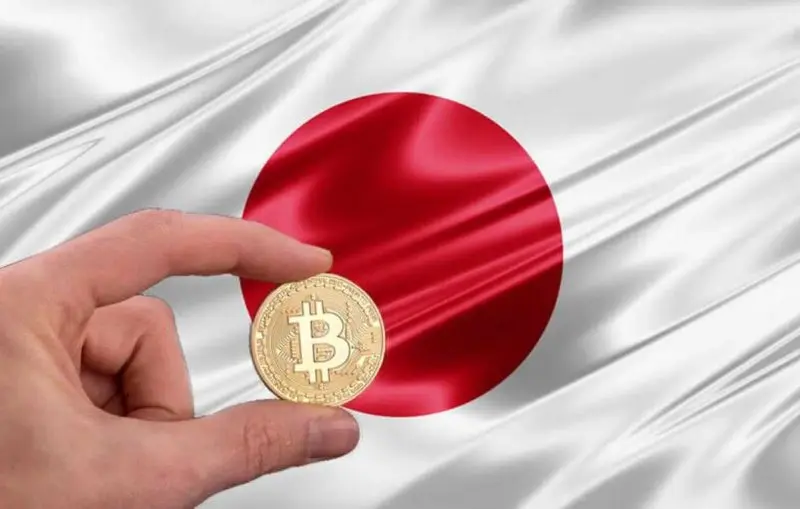|
Getting your Trinity Audio player ready...
|
Japan has long been recognized for its ambition to take the lead in the global cryptocurrency arena. However, despite this forward-looking mindset, the country’s financial regulators are treading cautiously, shaped by a history of significant crypto-related scandals. The Mt. Gox incident in 2014, which resulted in the loss of hundreds of millions of dollars in Bitcoin, has left a lasting scar on the national psyche. The Ministry of Finance’s skepticism toward cryptocurrencies reflects a broader concern about financial security and investor protection.
The ETF Dilemma
Oki Shiozawa of Sumitomo Mitsui Trust Asset Management succinctly summarizes the current sentiment: “It seems almost impossible to convince Japan’s financial authorities to open the door for crypto ETFs anytime soon.” The Financial Services Agency (FSA), which oversees the approval of financial products, remains notably conservative in its approach. This caution has left Japan lagging in the burgeoning ETF market, which could provide substantial tax benefits for investors.
A Tax Burden in Need of Reform
Japan’s high tax rates on cryptocurrency investments exacerbate the situation. Investors face a staggering tax burden of up to 55% on profits, classified as miscellaneous income. In contrast, crypto ETFs would be taxed under capital gains regulations, capping tax rates at around 20%. Such a shift could incentivize a broader base of investors, potentially leading to increased market participation. Additionally, the tax advantages of carrying forward losses associated with ETFs would make these investment vehicles even more appealing.
Japan’s apprehension towards cryptocurrencies can be traced back to high-profile scandals like Mt. Gox and DMM. These incidents deepened mistrust among regulators and the public, creating an environment where conservative approaches to new financial products are the norm. Family offices and corporate venture firms may be keen to explore crypto ETFs, but traditional asset managers and financial institutions are likely to hold back for the foreseeable future.
Signs of Future Readiness
Despite the slow progress, some firms are preparing for the eventual approval of crypto ETFs in Japan. Franklin Templeton and SBI Holdings announced a partnership in July to create a digital asset joint venture, which includes developing crypto ETFs. SBI has also partnered with the UK-based Man Group and U.S. private equity firm KKR on similar initiatives. Moreover, Nomura, a leading financial services group in Japan, has established a subsidiary dedicated to exploring cryptocurrency opportunities.
Interestingly, Japan’s crypto market has remained resilient amid global fluctuations. Spot trading volumes hit approximately 28.5 billion Japanese yen in fiscal year 2022, while leveraged trading reached a staggering 97.4 trillion yen before a subsequent decline. By the end of 2023, around 3.7 million active crypto accounts were reported, indicating a robust interest in the sector.
Yet, with crypto profits being taxed at rates ranging from 15% to 55%, the community has been vocal about the need for tax reform. The FSA has recently proposed a tax overhaul that aims to lower crypto tax rates starting in fiscal year 2025, treating cryptocurrencies more similarly to traditional financial assets.
Political Will for Change
Political support for reform is growing. Yuichiro Tamaki, leader of the Democratic Party for the People, has pledged to reduce crypto taxes to 20% if elected. This shift in the political landscape could pave the way for a more favorable environment for crypto investments and the eventual introduction of ETFs.
Japan stands at a crossroads in its cryptocurrency journey. While its historical caution is understandable, the potential benefits of crypto ETFs and the shifting political landscape suggest that a more open approach could be on the horizon. As the country navigates these turbulent waters, the push for tax reform and regulatory clarity will be crucial in determining the future of crypto in Japan. Only time will tell if Japan can overcome its past traumas and embrace the next wave of digital innovation.
Disclaimer: The information in this article is for general purposes only and does not constitute financial advice. The author’s views are personal and may not reflect the views of Chain Affairs. Before making any investment decisions, you should always conduct your own research. Chain Affairs is not responsible for any financial losses.




